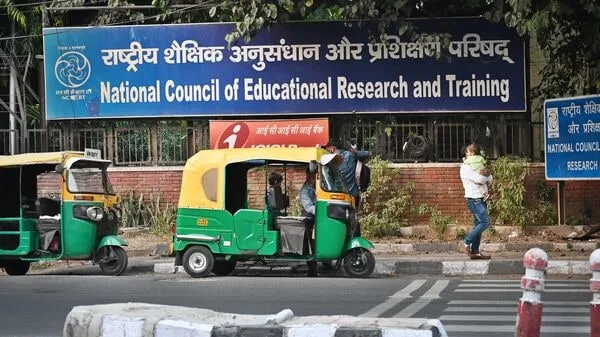The National Council of Educational Research and Training (NCERT), which is tasked with shaping school curricula, has in recent years increasingly veered away from its mandate of promoting an objective and rational understanding of history. Instead, history textbooks are now being used to forward a communal and divisive narrative that risks deepening social fractures in Indian society.
History is not just a record of the past; it is a powerful tool that shapes how young minds understand identity, community, and nationhood. When this tool is wielded to project one community as perennial aggressors and another as eternal victims, the result is not education but indoctrination.
The colonial British interpretation of Indian history largely revolved around religion. Monarchs were described not in terms of their political ambitions or statecraft but through a religious lens. This framework continues to dominate, distorting the complexity of historical events. Kings who fought for power and territory are now portrayed g as crusaders of religious ideologies. In reality, historical battles often involved rulers of the same faith vying for control. Armies were frequently composed of people from different religious backgrounds, and alliances often cut across religious lines.
Take for instance Shivaji, whose early conflicts were with Chandra Rao More, a Hindu chieftain. Babar’s path to establishing the Mughal dynasty involved defeating Ibrahim Lodi, a fellow Muslim. The Chola and Chalukya kings frequently clashed with one another. Yet current retellings highlight only Hindu-Muslim conflicts, often ignoring such intra-faith power struggles. This selective portrayal risks cementing modern religious identities to historical figures, falsely suggesting that present-day Muslims are collectively responsible for the actions of Muslim kings, and Hindus the inheritors of historical victimhood.
This distortion becomes glaring in the newly released NCERT Social Science textbook for Class 8, part of the series Exploring Society: India and Beyond, which focuses on Indian history from the 13th to 17th centuries. The text aggressively portrays Muslim rulers as temple-destroyers and religious fanatics, ignoring historical context and nuance.
For example, the destruction of temples is often cited as religious iconoclasm. But such actions were frequently politically motivated. Rajtarangini by Kalhana documents that Raja Harshdev, a Hindu king, appointed an officer titled Deottpatan Nayak—specifically to plunder temples. These were acts driven by the accumulation of wealth and political assertion, not religious dogma.
The NCERT textbook singles out Mughal emperor Aurangzeb for temple destruction, exaggerating numbers without solid historical evidence. It omits that Aurangzeb also issued numerous farmans (royal decrees) granting land and donations to Hindu temples—evidence documented by historian Dr. Vishambharnath Pandey. Similarly, it ignores Babar’s will, preserved in the National Museum in Delhi, where he advised his son Humayun to avoid temple destruction and cow slaughter, recognizing the sentiments of his predominantly Hindu subjects.
The portrayal of events such as the siege of Chittorgarh under Akbar, where temple destruction and massacres occurred, is also used to underscore Muslim cruelty. Yet historical records show that Rajput rulers, like Bhagwant Das, were part of Akbar’s coalition. This was not an isolated betrayal by outsiders but part of the complex political landscape of the time. Equally brutal acts by Hindu kings—such as the Cholas razing cities and Jain temples, or Pushyamitra Shunga’s persecution of Buddhists—are omitted from the narrative.
The reality is that cruelty and warfare were integral to monarchical rule, irrespective of religion. The armies of Mughal rulers included prominent Hindu generals like Raja Man Singh and Jaswant Singh. Similarly, Hindu kings like Rana Pratap had trusted Muslim commanders such as Hakim Khan Sur. Shivaji, often celebrated as a Hindu icon, had Daulat Khan and Ibrahim Gardi among his top generals. These examples reflect a far more plural and syncretic past than is now being conveyed.
The selective focus also misrepresents taxes like the jazia, painting it as religious persecution. In truth, this tax on non-Muslims—who were considered protected subjects (dhimmis) under Islamic law—was not a blanket imposition throughout the Mughal period. Akbar abolished it early in his reign. Moreover, Muslims had to pay zakat, a religious tax of their own. The jazia, which exempted Brahmins and women, was not an incentive for religious conversion.
Labeling this entire era as a "dark period" dismisses its immense cultural and spiritual contributions. It was during this time that the Bhakti and Sufi movements flourished, emphasizing love, equality, and social justice. The Sikh religion was founded and began to thrive. A rich syncretic culture—Ganga-Jamuni tehzeeb—emerged, blending elements of both Hindu and Muslim traditions in architecture, language, art, music, and daily life.
The danger of such historical revisionism is not merely academic. It encourages the vilification of present-day communities by associating them with selectively chosen historical wrongs. It undermines the diverse and shared heritage of India and stokes majoritarian sentiments under the guise of education.
As students across the country internalize these skewed narratives, the long-term damage to social cohesion and interfaith harmony could be profound. The role of educational institutions like NCERT must be to cultivate critical thinking and empathy, not historical resentment. If history is to teach anything, it must be the dangers of hatred and the value of unity.
---


Comments